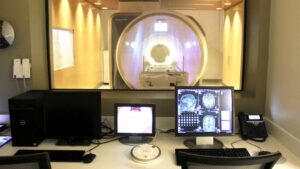No one couldn’t agree more if it is said that technological advancements have revolutionized the healthcare sector to a significant extent. Diagnosing complex health problems and treating the same is no more trouble with the advent of an eclectic range of diagnostic and healthcare equipment. Keep reading to learn about the latest MRI trends.
Extensive Use of Magnetic Resonance Imaging
One of the first imaging clinics in the United States that installed a 7T MRI was the University of Southern California. All this while, only academic research institutes have used high-end, feature-rich MRI equipment.
Otherwise, the market harnessing the potential of MRI has remained small. The primary market has been using 1.5T MRI systems. However, according to Signify Research, the 3T systems demand has started to increase as it can potentially be the standard MRI system.
With the rise in demand for a higher grade, advanced medical imaging, diagnostics centers have begun using Magnetic Resonance Imaging in an extensive manner. The emergence of modern technologies is instrumental in cutting down the time to conduct MRI exams.
Possible Expansion of MRI Systems in the Coming Times
The research manager at Signify, Bhvita Jani, mentioned how various cutting-edge technologies have started impacting the growing MRI market. It seems that MRI systems will have a yearly growth rate in Magnetic Resonance Imaging of 47%. In 2021, there was a notable rise in sales of advanced MRI equipment.
Jani emphasized that she has been witnessing of late how emerging markets have begun embracing MRI in order to gain improved access to the new technology. Besides the rise in outpatient units, the usage of MRI systems is apparent in developing nations and rural areas. New Magnetic Resonance Imaging technologies are playing a crucial role in contributing to the sales of MRI systems.
Read further to learn about new trends in MRI, such as the advent and effectiveness of portable and small MRI devices, helium-free cooling tools, MRI systems equipped with AI and many more. All these latest tools or devices are allowing radiology specialists to conduct MRI exams with ease and in much less time.

Efficient MRI Devices Owing to Artificial Intelligence and Compressed Sensing Technology
According to Jani, there has been significant growth in software improvement for MRI. Primarily because of compressed sensing technology, completing MRI exams in a quick time is possible. This advanced technology is instrumental in shortening appointments pertaining to scanning and facilitating one-beat cardiac MRI scans. When combined with AI, compressed sensing helps further reduce MRI exam time.
Nowadays, besides MRI systems, post-processing software also comes equipped with Artificial Intelligence. Here are the various applications of AI at present –
- Image construction enhancement for crystal-clear images
- Assisting operations workflows
- Accurate patient positioning
Aside from the aforementioned ones, AI is being utilized in certain applications in neurology, cardiology and orthopedics. The reasons are expediting workflows and automating quantifications and measurements.
The latest software helps cut down MRI scanning times, besides increasing the amount of clinical information certified radiologists retrieve after MRI exams. Hospitals, nursing homes and diagnostics centers are investing more in medical imaging equipment these days to scan more patients in a quick time. These devices prevent radiologists from compromising on the MRI exams’ quality or imaging reports.
Easy to Install Helium-free Systems Reduce Costs
Newly introduced helium-free MRI equipment uses helium as a coolant, especially for magnets. This particular MRI system uses relatively less helium compared to traditional ones. Here’s how helium-free MRI systems are different from conventional MRI devices.
- The helium-free MRI system utilizes a very low amount of helium
- The helium-free system comes completely sealed
- No requirement for a vent or quench stack
These portable MRI systems can ensure high-strength MRI fields. There is not much requirement for super-cooling using liquid helium. Eventually, it reduces the price of these helium-free MRI devices. The demand for these systems is increasing remarkably as they are a more cost-efficient and sustainable choice.
The number of diagnostic clinics using sepStream® software is increasing a lot as it can help radiology specialists carry out MRI exams effectively and quickly. In addition, obtaining flawless imaging reports right after conducting MRI and sharing the same with patients and their family members is hassle-free.